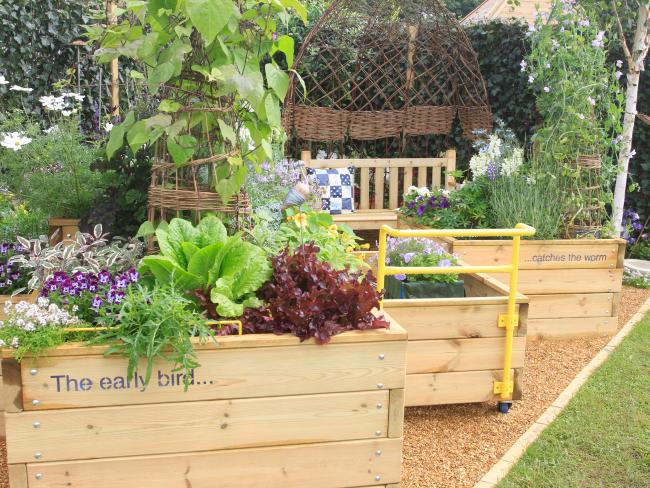
Care Home Garden, RHS Tatton Flower Show 2012: garden design for people living with dementia. Photo Joan Mulvenna (Garden Design Manchester).
The horticultural industry is becoming clear about what is needed to secure the sector’s future post-Brexit. A parliamentary group sponsored by the trade association published a report in October dealing with both biosecurity and training.
Brexit is welcomed as a unique opportunity to increase British plant production. Growing more plants in Britain rather than importing them would offer economic gains. And it would help to mitigate serious biosecurity risks associated with importing plants and trees.
According to a recent report from Oxford Economics, ornamental horticulture and related industries directly and indirectly support over 550,000 jobs. They contribute around £24 billion to the UK’s gross domestic product and are linked to £5.4 billion in tax revenue. There are also significant cultural and other indirect benefits for Britain.
The industry is particularly concerned at the moment to prevent the bacterial disease Xylella fastidiosa from reaching Britain. It affects a wide range of woody commercial plants, several species of broadleaf trees widely grown in the UK and many herbaceous plants.
In October 2013 this disease was discovered infecting olive trees in southern Italy. It has now become established in mainland Europe and in a number of islands, infecting a range of commercial plants and trees.
Imports of plants have been falling steadily as members of the industry voluntarily sign up to a “plant healthy” scheme where they guarantee not to source susceptible plants from areas affected by the disease. Also, a number of nurseries have begun moving to closed-loop systems where they source and grow all stock in-house.
There is an opportunity to replace a large proportion of the £300 million worth of plant material we import every year. The report calls on the government to provide incentives and investment to increase this expansion of the sector. Such expansion would mean increased demand and opportunities for workers. Horticulture already offers a wide range of opportunities for young people to gain qualifications and embark on successful careers.
• A longer version of this article is on the web at Horticulture plans for the future
